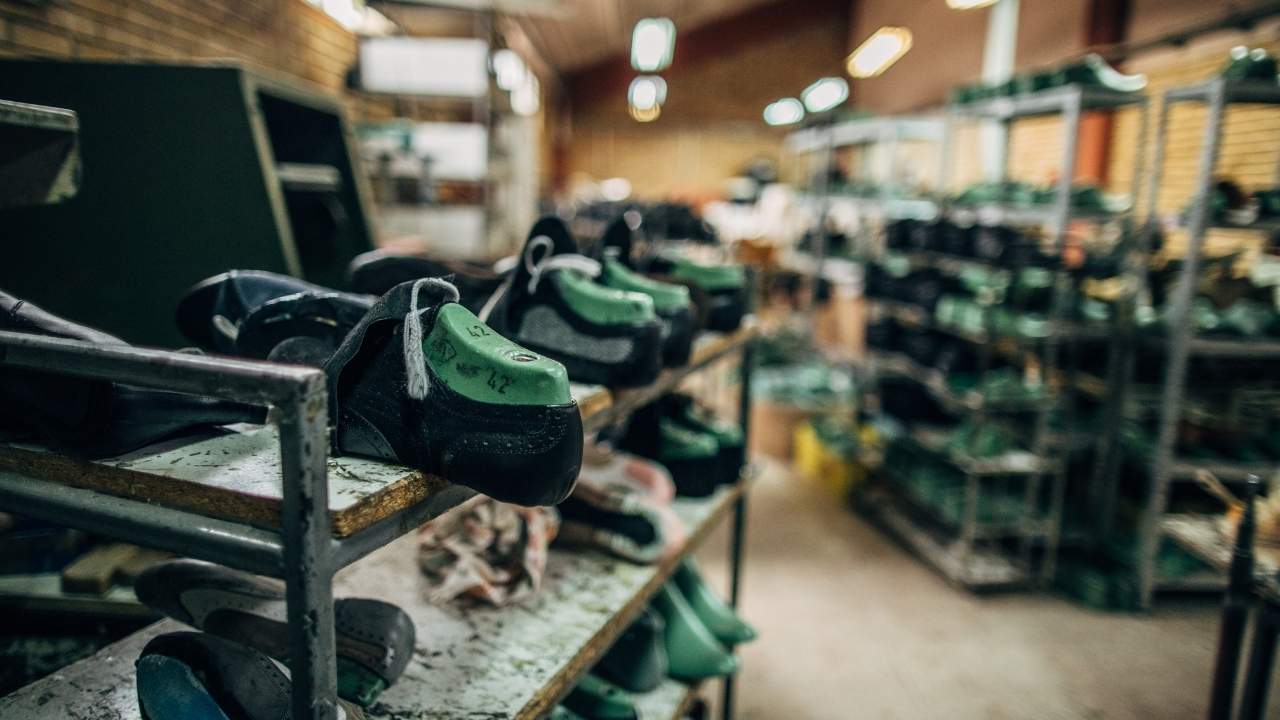Effective regulatory compliance has become an indispensable part of manufacturing operations today. Beyond just fulfilling legal obligations, a proactive compliance strategy can confer significant competitive advantages. This article provides an in-depth guide to developing robust manufacturing compliance frameworks in the era of complex regulations and integrated ERP systems.
Rethinking Compliance for a Manufacturing Business: From Obligation to Opportunity
Traditionally viewed as a box-ticking exercise, compliance is now evolving into a value-creation process. Leading manufacturers recognize compliance as a powerful catalyst towards:
- Ensuring product quality and safety
- Improving process efficiency
- Enhancing brand reputation
- Opening up new markets
- Building resilient supply chains
However, the regulatory landscape continues to grow more complex. Manufacturers must navigate an intersecting matrix of environmental regulations, industry-specific standards, evolving ISO frameworks, trade policies, and more.
The cost of non-compliance also continues to rise, resulting in financial penalties, lawsuits, revoked permits, and lasting reputational damages. This necessitates an upgraded compliance strategy centered on flexibility, transparency, and technological integration.
Embracing a Proactive Compliance Culture
In the face of increasing regulations, manufacturers need to transition from reactive firefighting to proactive risk management. Leading companies are building robust compliance management systems (CMS) focused on:
- Ongoing training: Regular training ensures employees at all levels understand the regulatory needs and implications.
- Internal audits: Self-assessments help verify ongoing compliance, identify potential gaps, and highlight improvement areas.
- Collaborative structures: Cross-functional compliance teams allow manufacturers to take a unified approach instead of working in silos.
- Technology integration: Automated compliance software provides real-time visibility, reduces oversight risks, and frees up resources.
This foundation of a proactive culture, enabled by the right mix of people, processes, and technologies, is key to long-term compliance success.
Deconstructing the Regulatory Maze for Manufacturing Businesses Compliance Needs
Evolving regulations present a multifaceted challenge for manufacturers. Let us analyze some key compliance frameworks manufacturers need to integrate into their operations:
A. Environmental Regulations
Environmental sustainability has taken center stage globally, with regulations aiming to reduce waste, pollution, and resource depletion. Core directives manufacturers need to comply with include:
- WEEE (Waste Electrical and Electronic Equipment): Focuses on the collection, treatment, and recycling of electronic waste in an environmentally sound manner
- REACH (Registration, Evaluation, Authorization, and Restriction of Chemicals): Aims to improve protection of human health and environment from risks of chemicals
- RoHS (Restriction of Hazardous Substances): Limits or bans specific substances like lead, mercury, and cadmium in electronic devices
Smart manufacturers now view environmental compliance as a sustainability initiative rather than a burden. Many are implementing closed-loop systems to track products from production to end-of-life disposal. Strategic investments into green product designs and circular supply chains also enable companies to turn regulations into market differentiators.
B. Industry-Specific Regulations
In addition to overarching directives, manufacturers need to abide by regulations tailored to their specific industries. For instance:
- Food safety regulations: Food and beverage manufacturers must comply with complex and frequently updated FDA/ FSSAI regulations around Good Manufacturing Practices (GMP), product labeling, supply chain traceability, recall preparedness, and more.
- Quality standards: Medical device makers need to adhere to stringent ISO 13485 guidelines. Automotive players follow IATF 16949 standards. Such specifications impact production methods, quality processes, documentation, and technology integration.
Smart manufacturers dig deeper to understand the nuances around such niche regulations instead of just checking boxes. Viewing compliance as a quality catalyst rather than a cost center allows companies to improve customer trust and access highly regulated markets.
C. Mastering the ISO Evolution
The International Organization for Standardization (ISO) has a significant influence on manufacturers worldwide. Evolving ISO standards compel companies to continually reexamine their quality, environmental, health, and safety (EHS) frameworks. Core developments include:
- ISO 9001:2015: This latest quality management system (QMS) revision shifts focus from documentation to risk-based thinking, process management, and continuous improvement.
- ISO 14001:2015: The enhanced environmental management system (EMS) guidelines integrate sustainability deeper into corporate strategy instead of just being an isolated function.
- ISO 45001:2018: This occupational health and safety (OHS) system replaces OHSAS 18001. It adopts a proactive approach to employee safety centered on risk mitigation and over-reactive incident management.
Manufacturers investing early into integrating such revisions gain a first-mover edge. Going beyond mandated requirements to make compliance a competitive advantage remains the goal.
Leveraging Technology for Compliance Excellence for a Manufacturing Business
Technology integration is vital for manufacturers seeking compliance leadership, especially in areas like:
A. Quality and GMP Compliance
Instead of relying just on manual inspections, manufacturers can leverage solutions like:
- IoT and sensors: Smart factory equipment with built-in sensors enables real-time quality monitoring during production. Any process deviations can be caught early.
- Big data analytics: Collecting and correlating cross-functional data helps identify compliance risk factors and patterns. Issues can be preemptively addressed.
- AI and machine learning: Self-learning algorithms can constantly analyze data from IoT sensors to predict potential non-compliance events. They also minimize dependence on human oversight.
Such technologies drive higher compliance accuracy while optimizing efficiency. Leaders are evolving towards integrated digital ecosystems where data seamlessly flows across operational silos to provide a unified compliance view. Compliance shifts from being reactive to proactive.
B. Supply Chain Compliance
Modern technologies are proving game-changers for enhancing supply chain visibility and compliance:
- Blockchain: Its distributed ledger architecture enables all network partners to access tamper-proof material histories and transaction records. This drives transparency across outsourced manufacturing and multi-tier supplier networks.
- Big Data Analytics: Intelligent analysis of disparate supply chain data – from supplier audits to shipment locations – helps assess compliance risks. Trends and patterns can be used to improve sub-standard processes.
- IoT: Smart sensors on components, equipment, and shipments provide real-time tracking data, alerting manufacturers to potential compliance issues like counterfeits, adulterations, or unauthorized supply substitutions.
Instead of relying solely on periodic supplier audits, manufacturers can collaboratively build intelligent supply networks with shared compliance data. This proactively minimizes disruptions while strengthening partner ecosystems.
C. Compliance Software
The right software is imperative for manufacturers to harmonize compliance across quality, EHS, supply chain, etc. Capabilities to look for include:
- A unified platform covering major standards/regulations
- Risk assessment frameworks and dashboards
- Integration across business data like ERP, MES, LIMS, etc.
- Automated workflows, alerts and notifications
- Analytics-driven insights into compliance performance
- Scalability across global facilities and suppliers
Equally important is choosing software that aligns with existing IT infrastructure for a unified compliance ecosystem. Market leaders also provide flexible delivery models via cloud and mobile to maximize value. Investing in the right solutions provides tangible returns as compliance evolves into a value creator.
Building Resilient Supply Chains
With regulations frequently impacting global trade, manufacturers need supply chain resilience centered on visibility, adaptability, and collaboration:
A. Navigating Global Volatility
Trade wars, tariffs, sanctions, and policy changes are challenging manufacturers dependent on extended offshore supply networks. Strategies like multi-country supplier diversification, increased localizations, and dynamic inventory buffering help mitigate such external disruptions. Digitally tracking critical components also provides alert systems for quick alternate sourcing if needed.
B. Managing Supplier Risks
Despite due diligence, manufacturers often struggle with sub-standard supplier compliance. A revised third-party risk management approach helps:
- Tiered assessments: Classify suppliers based on risk criticality to compliance, quality, IP, etc., and allocate oversight resources accordingly instead of one-size-fits-all audits.
- Performance scorecards: Develop supplier rating systems spanning compliance, quality, delivery, technology adoption, etc. Improvement plans can address poor scores.
- Compliance mentoring: Share internal best practices, conduct joint compliance training workshops, and help suppliers upskill instead of just penalizing them. A collaborative approach improves ecosystem resilience.
C. Ethical Sourcing
Beyond compliance, manufacturers are also integrating ethical sourcing practices like:
- Mandating suppliers to follow standards around fair labor practices, workplace safety, environmental sustainability, etc.
- Providing visibility into sub-tier supplier performance using technology tools for areas beyond immediate oversight.
- Building secure whistleblower mechanisms for external stakeholders like workers, NGOs, etc. to anonymously report unethical issues across the supply network.
Such initiatives help manufacturers align sourcing with their larger CSR vision instead of solely focusing on compliance.
Sustainability and ESG in Manufacturing Compliance
Sustainability and Environmental, Social, and Governance (ESG) factors have become integral to manufacturing compliance strategies. Adopting sustainable practices provides significant benefits:
-
Reduced Carbon Footprint
Manufacturers can reduce greenhouse gas emissions by increasing energy efficiency, using renewable energy, and investing in carbon capture technologies. Intel, for example, sources 100% renewable power across global operations, avoiding over 3 million metric tons of emissions annually.
- Waste Minimization
Strategies like lean manufacturing, recycling, and reusing waste in processes can drastically cut waste generation. Toyota’s zero waste initiative reuses over 95% of waste at manufacturing plants.
- Water Conservation
Upgrading equipment, recycling water, and treating discharge enables major water savings. Samsung’s wastewater recycling system has decreased water withdrawal by over 40%.
- Reputational Gains
Sustainable operations enable manufacturers to meet customer expectations and government regulations on ESG factors. Apple’s commitments to carbon neutrality by 2030 led its ESG ratings to outperform over 90% of sector peers.
- Operational Efficiency
Measures like preventative maintenance improve energy, water, and resource efficiency while increasing productivity. Intel’s emissions reduction program has cumulatively saved over $250 million.
- Risk Mitigation
Proactive adoption of sustainable practices hedges against regulatory shifts and climate change disruptions.
Integrating sustainability into compliance management systems through certified standards like ISO 14001 boosts resilience while signaling commitment.
Why do Manufacturing Businesses need a Solution like Versa Cloud ERP for their Compliance Needs?
As manufacturers continue navigating increasingly complex regulatory environments, the need for a unified platform to manage compliance across global operations has never been greater. Versa Cloud ERP stands out as one of the most robust and versatile solutions on the market.
With Versa, companies gain a single connected system to oversee quality, inventory, accounting, and supply chain compliance from production to the boardroom. Its unified data model provides real-time visibility across the business for proactive risk management. Pre-built functionality for industries like textiles, machinery, consumer products, food, medical devices, automotive & more ensures compliance with the latest standards.
Versa’s flexibility lets customers scale from a single facility to a multi-national corporation. Its cloud-native architecture enables anytime, anywhere access while lowering IT costs. Integrations with shop floor devices and 3PL networks deliver end-to-end visibility and control. Versa’s analytics and reporting tools surface actionable compliance insights to drive continuous improvement.
Perhaps most importantly, Versa understands that compliance is a journey, not a destination. Its experts can become an extension of your team, advising on regulations and helping transform processes. By choosing Versa, manufacturers gain both a powerful technology platform and a long-term partner for compliance success.
Schedule a free customized demo to see how Versa’s integrated platform can streamline your operations while strengthening compliance posture. Discover why leading brands trust Versa to future-proof their businesses in this new era of regulations, disruptions, and opportunities.
A Small Business in the modern day is complex and requires resources to deliver on its goals and achieve its full potential. To create a small business success story business owners need an ERP system that grows with them.
Effectively manage your financials, inventory, and production workflows with our award-winning ERP.
Let Versa Cloud Erp’s do the heavy lifting for you.
[widget id=”custom_html-40″]
[widget id=”custom_html-42″]
[widget id=”custom_html-30″]
Do Business on the Move!
Make your businesses hassle-free and cut the heavyweights sign up for the Versa Cloud ERP today!!
Join our Versa Community and be Future-ready with us.
[widget id=”custom_html-20″]






